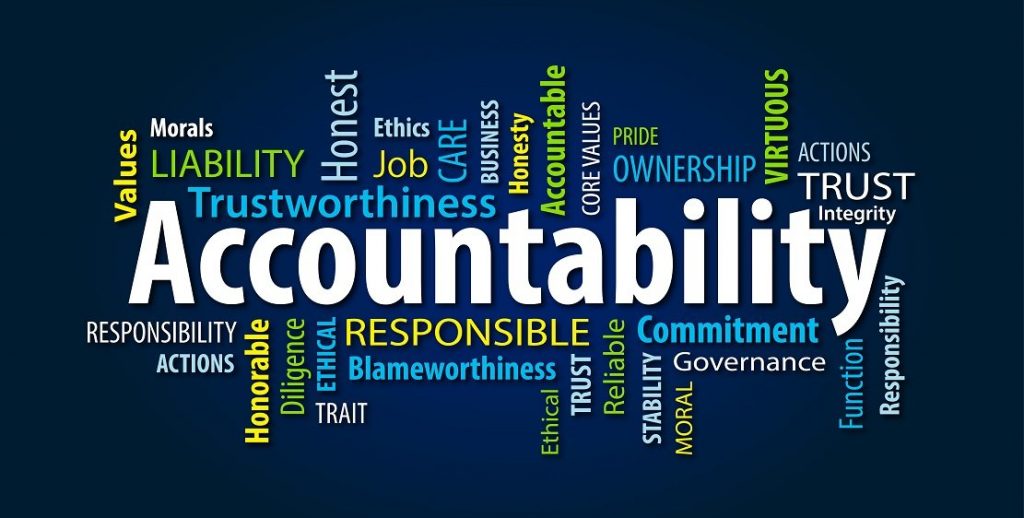Political Accountability: How to Ensure Transparency in Government
In any democracy, transparency and accountability in government are essential for ensuring that power is used responsibly and that the public’s interests are prioritized. Without transparency, governments can become corrupt, inefficient, or disconnected from the needs of their citizens. Political accountability, on the other hand, fosters trust, reduces corruption, and ensures that elected officials and government agencies remain answerable to the people they serve.
But how do we ensure political accountability in practice? Here are some key measures to help promote transparency in government and make public officials more accountable to the people they represent.
1. Freedom of Information Laws
One of the most powerful tools for ensuring government transparency is the establishment of freedom of information (FOI) laws. These laws allow citizens, journalists, and organizations to request access to government records, policies, and decision-making processes. FOI laws ensure that governmental actions are open to scrutiny and help prevent corruption and misconduct by making the process of governance more transparent.
For example, in many democratic countries, citizens can file requests to obtain documents about public spending, political decisions, and even private communications between officials, provided that such requests do not infringe on national security concerns.
2. Independent Watchdog Organizations
Independent bodies like ombudsmen, auditors, and civil society organizations play a critical role in monitoring government actions and ensuring accountability. These organizations conduct audits, investigate complaints, and report on the activities of public institutions. They help detect corruption, mismanagement, and inefficiency within government agencies, and they provide an avenue for citizens to voice concerns or grievances.
For instance, in many countries, the National Audit Office or similar bodies regularly review government spending and report on how taxpayer money is being used, ensuring that it aligns with the public interest.
3. Political Transparency through Digital Platforms
The digital age has brought about significant changes in how governments can be held accountable. Digital platforms and social media provide a direct way for citizens to communicate with government officials and each other. Governments can use these platforms to share information about their policies, budgets, and decisions, allowing for greater transparency in decision-making.
In addition, the use of open data initiatives—where governments release data on public spending, public services, and legislative actions—makes it easier for anyone to analyze government operations. This promotes transparency by allowing experts, media, and citizens to track government activities in real-time.
4. Strengthening Electoral Systems and Campaign Finance Regulations
Free and fair elections are fundamental to political accountability, but to ensure that elections remain transparent, it’s essential to regulate campaign finance and voting processes. Election transparency involves preventing voter fraud, ensuring fair representation, and minimizing the influence of money in politics.
Strict campaign finance laws, requiring disclosure of political donations and expenditures, can help curb the undue influence of wealthy individuals or corporations over political decision-making. Public funding of political campaigns can also reduce the reliance on private donations and make political candidates more responsive to the needs of the electorate rather than special interests.
5. Whistleblower Protection
Whistleblowers are individuals who expose unethical or illegal activities within an organization. In government, whistleblowers often bring attention to corruption, wasteful spending, or violations of public trust. To encourage accountability and transparency, governments need to implement whistleblower protection laws that safeguard individuals who report wrongdoing from retaliation.
These protections are crucial because they provide a safe avenue for government employees or citizens to report unethical practices without fear of losing their jobs, facing harassment, or being publicly discredited. By protecting whistleblowers, governments can foster a culture of integrity and openness.
6. Regular Public Hearings and Open Debates
Another important measure for ensuring political accountability is encouraging public hearings and open debates on government policies, budgets, and legislation. When public representatives are required to answer questions from citizens, journalists, and opposition leaders, it fosters a culture of transparency.
Public hearings provide a platform for experts and members of the public to voice concerns or support for various policies, making it harder for government decisions to be made behind closed doors without scrutiny. Similarly, regular debates on policy issues allow citizens to hear directly from politicians about their positions and decisions.
7. Citizen Participation and Grassroots Activism
Political accountability also hinges on active citizen engagement. When citizens are involved in the political process, whether through voting, advocacy, or public participation in decision-making, they help ensure that government officials remain responsive to their needs.
Grassroots organizations, protests, town hall meetings, and online petitions can all serve as powerful tools for holding government officials accountable. By participating in these activities, citizens can demand greater transparency and push for more accountable governance. Additionally, public consultation processes on important policy issues allow citizens to have a say in the laws and policies that affect them directly.
8. Term Limits and Anti-Corruption Laws
A key element of ensuring political accountability is establishing term limits for elected officials and creating strong anti-corruption frameworks. Term limits prevent the concentration of power in the hands of a few individuals and encourage fresh perspectives and leadership in government.
Anti-corruption laws are equally important. These laws should impose strict penalties for officials caught engaging in corrupt activities such as bribery, embezzlement, or abuse of power. By holding public officials accountable for their actions, the government sends a clear message that corruption will not be tolerated.
9. Public Accountability through Media
A free and independent media is essential to holding governments accountable. Investigative journalism plays a crucial role in uncovering abuses of power, exposing corruption, and informing the public about the actions of their elected officials. Governments should respect and protect media freedom, ensuring that journalists can report without fear of censorship or persecution.
Additionally, media outlets and journalists can serve as a check on government by demanding answers from public officials and encouraging transparency in all areas of governance.
Conclusion
Political accountability is the backbone of any democratic society. Ensuring that governments remain transparent, responsible, and answerable to the people requires a combination of legal frameworks, public engagement, and the active involvement of independent bodies and the media. Through measures like freedom of information laws, whistleblower protection, public hearings, and citizen participation, we can create a political environment where leaders are held accountable for their actions, and public trust is upheld. Ultimately, a transparent government leads to better policies, a more informed electorate, and a healthier democracy.

